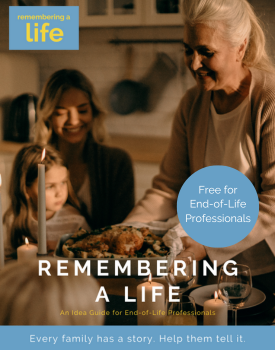It’s been tough to carve out time for meaningful conversations during the pandemic. This is how I’ve done it.
I have spent a lot – and I mean a lot – of time with my kids over the last 18 months. From one moment to the next last winter, they went from small humans I loved spending evenings and weekends with outside of work hours to 24/7 constant companions – as the months of quarantine ticked by, they were my coworkers, virtual schooling students, the only friends I saw IRL besides my husband oh, and also, my kids.
One might hope that spending so much time together has taught us everything we need to know about each other. But as you probably know, we have been in deer-in-the-headlights mode for such a long time now, and every time we think we are on the cusp of a respite, the goal posts move. So sure, I’ve spent a lot of time with them. But I can’t really call all of it “quality;" it’s more logistical, hectic, and frequently stressed. And most of the time, finding moments to have meaningful conversations is something that requires planning.
So when I received a few packs of Remembering A Life’s Have the Talk of a Lifetime Conversation Cards, I knew this was an easy plan I could take on. These clever products were created to encourage friends and families to share stories about life, the things that matter most and how they want to be remembered = something I’m thinking a lot about lately, as I approach the 15th anniversary of my mom’s death in early September.
The card collection has three different themes: First, the Original deck, which has 50 questions to get conversations going about life events, experiences and personal beliefs (it’s also available in Spanish, which I love, and hope that Remembering A Life develops these in additional languages). I’ve used those a lot with friends during virtual cocktail hours and FaceTimes. Next, the Kids’ deck, which has 25 questions designed to include the youngest members of the family in conversation. And finally, the Celebrations deck, with 25 questions that invite people to share stories about everything from birthdays and anniversaries to faith-based and national holidays.
The best part: one doesn’t have to be a natural conversationalist to get something meaningful out of their use. The prompts are creative and accessible, with deeper questions peppered throughout about, say, someone’s take on faith or spirituality or which events in the country have had the greatest impact on that person. It resembles more of a game that is also a meaningful resource to facilitate what could be a challenging conversation that many of us might naturally avoid.
I think we are all spending a lot of time pondering memory and legacy during a time of so much incredible loss. I want my children to know as much as possible so that they can share stories together and also, hopefully, with their own families one day.
I’ve been using the kids pack on our (very long) summer road trips, since we aren’t flying with them while they’re still unvaccinated. Turns out that having them ask me questions like, “Do you have a nickname and how did you get it?,” “What makes you sad?,” and “If you could have a super power, what would it be?” are just as entertaining for them as screen time, and certainly a lot more interactive. And for me, it makes me feel calmer knowing that I’ve figured out a way to have rich and satisfying exchanges with my kids that teach them about memorable events, people, places, values and lessons I’ve learned.
I’ve also gifted a lot of these to family and friends to bring them closer to the ones they care about during a time when we seem to have no choice but to keep a safe physical distance between each other. It allows them to share stories about life, the things that matter most and how they want to be remembered.
Listen to Rebecca talk about Modern Loss, a space she founded to share the unspeakably taboo, unbelievably hilarious and unexpectedly beautiful terrain of navigating your life after a death.

